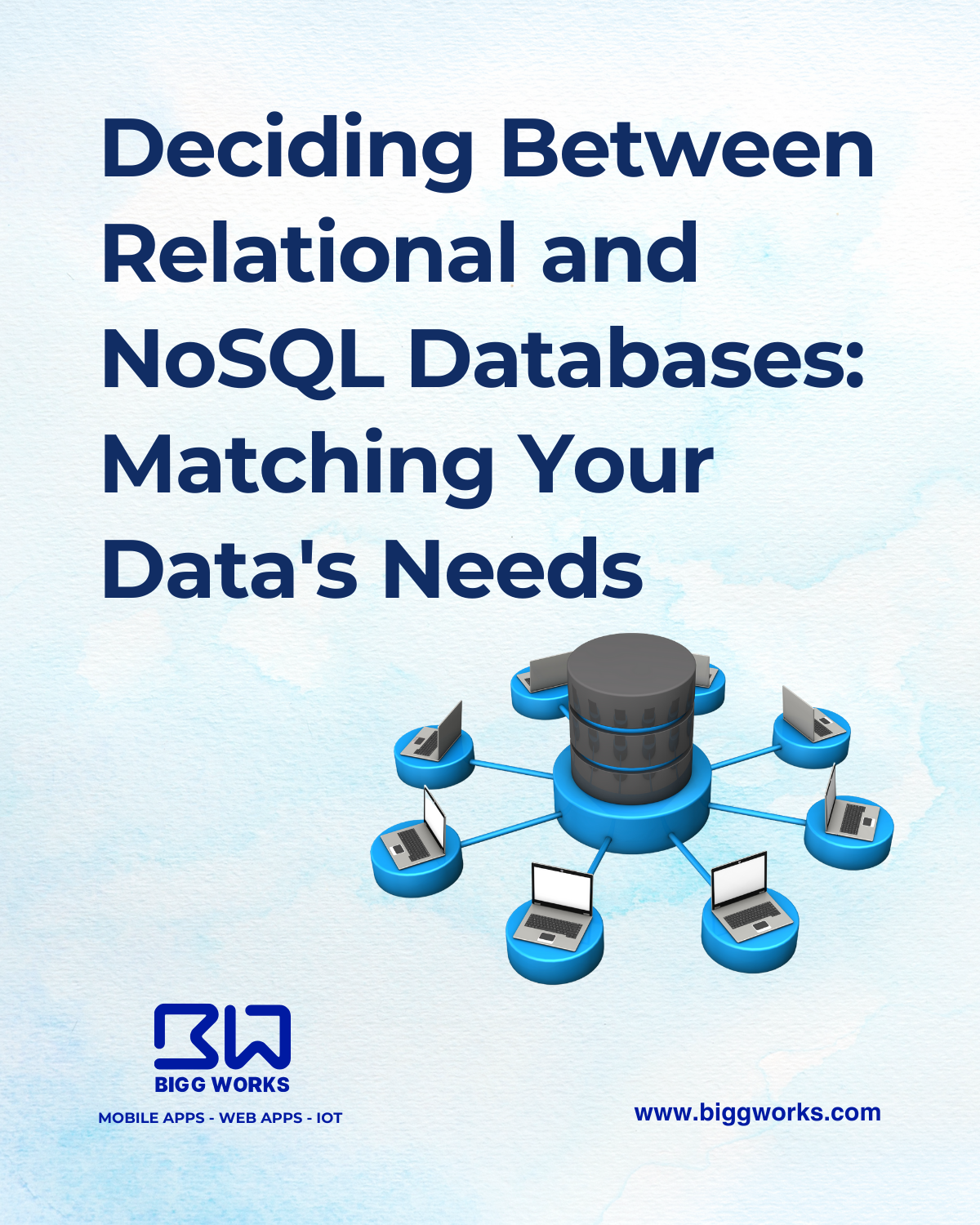Deciding Between Relational and NoSQL Databases: Matching Your Data's Needs

Choosing the right database type is a pivotal decision in web development. This article explores the merits of relational databases (MySQL, PostgreSQL) and NoSQL databases (MongoDB, Firebase), guiding you to select the optimal database solution that aligns with your data's characteristics.
Structured Data:Relational databases store data in tables with predefined schemas, ensuring data integrity.
Complex Queries:SQL allows for complex queries, making it suitable for applications requiring intricate data retrieval.
ACID Compliance:Relational databases adhere to ACID (Atomicity, Consistency, Isolation, Durability) properties, ensuring transactional reliability.
Scalability Challenges:Scaling relational databases can be complex, especially for applications with high read/write demands.
Schema Rigidity:Changes to the schema can be challenging and might necessitate significant modifications.
Schema Flexibility:NoSQL databases accommodate unstructured or semi-structured data, allowing for agile schema changes.
Scalability:NoSQL databases are built for horizontal scalability, making them suitable for applications with varying data volumes.
Performance:NoSQL databases excel in scenarios with high read/write operations, offering low-latency data retrieval.
Limited Complex Queries:NoSQL databases might lack the versatility of complex querying found in relational databases.
Consistency Trade-offs:Some NoSQL databases prioritize availability and partition tolerance over strict consistency.
Structured Data:Relational databases shine when dealing with structured data, such as financial records, where data integrity is paramount.
Agile Development:NoSQL databases suit projects requiring flexible data modeling, like content management systems or real-time analytics.
High Read/Write Loads:NoSQL databases excel in applications with frequent read/write operations, such as social media platforms.
Dynamic Schemas:If your data's structure evolves frequently, NoSQL databases allow for schema evolution without complex migrations.
Data Complexity:Relational databases are suitable for well-defined, structured data; NoSQL databases for more diverse data.
Scalability:NoSQL databases offer better horizontal scaling, ideal for applications with varying workloads.
Query Flexibility:If your application requires complex querying, a relational database might be a better choice.
Development Speed:NoSQL databases facilitate agile development with dynamic schemas, while relational databases ensure data integrity.
The choice between relational and NoSQL databases hinges on your data's characteristics and your project's goals. Whether you prioritize structured integrity or unstructured flexibility, each database type offers distinct advantages. By understanding your data's needs and your application's requirements, you can make an informed decision that sets the foundation for efficient data management and a successful web development journey.
#WebDevelopment #WebApps #WebDesign #FrontEnd #BackEnd #Programming #Coding #SoftwareEngineering #UIUX #FullStack #JavaScript #HTML #CSS #ReactJS #NodeJS #PHP #Python #WebDeveloper #MERN #MEAN